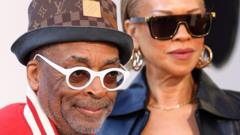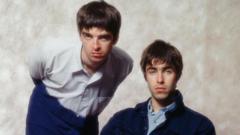Ed Sheeran's recent self-identification as "culturally Irish" has ignited conversation about the fluidity of cultural identity, particularly regarding Irish heritage and its connection to Britain's evolving social landscape.
Understanding 'Culturally Irish' Identity in 2025: Insights from Ed Sheeran

Understanding 'Culturally Irish' Identity in 2025: Insights from Ed Sheeran
Exploring the complexities of cultural identity amidst contemporary discussions on 'Irishness.'
Ed Sheeran is stirring debate with his declaration of being "culturally Irish," a sentiment that has garnered both support and criticism across social media and beyond. Initially born in Framlingham, Suffolk, Sheeran attributes his strong Irish connection to his paternal roots—his grandparents hail from Ireland, and he fondly recalls summer holidays spent on the Emerald Isle. His hit song “Castle on the Hill” reminisces about his childhood, displaying the deep ties he feels to both his English upbringing and his Irish heritage.
Critics have called him out, labeling his identification as selective or inauthentic, suggesting he embraces Irish identity only when beneficial. However, Sheeran staunchly defends his cultural ties, claiming they are integral to his upbringing and artistic influence. “I can be allowed to feel a connection to a place half my family is from,” he stated.
The conversation around Irish identity is multifaceted, especially in the context of Northern Ireland's complex history. Ros Scanlon, a cultural programmer at the Irish Cultural Centre in London, contextualizes Sheeran's experience as reflective of many British residents with Irish ancestry, asserting that his declaration celebrates rather than diminishes either British or Irish identity.
North of the border, political discourse is beginning to morph as individuals embrace a more nuanced view of identity, often subverting the traditional British/Irish binary. Claire Hanna, a Member of Parliament from Northern Ireland, accentuated this shift in a St. Patrick's Day address, highlighting a greater embrace of a mixed identity in a post-conflict era.
For many, the interpretation of what it means to be 'culturally Irish' is deeply personal and varies widely—from a connection to the land to an appreciation for Irish music and humor. Artists like Sally Rooney and the band Kneecap illustrate distinct elements of cultural Irishness, resonating with both those in Ireland and abroad.
In contemporary Britain, the landscape of cultural identity continues to evolve, with second and third-generation Irish individuals crafting identities that incorporate global influences alongside their Irish heritage. Historian Caoimhe Nic Dháibhéid notes that, owing to increased connectivity—especially through travel—individuals can now more readily explore their ancestral roots.
Fergal Keane, the article's author and himself a product of mixed identity, reflects on how his heritage shapes his view of identity, advocating for the acceptance of fluid identities beyond the constraints of nationality or citizenship.
Despite this progress, complexities remain, particularly in the wake of Brexit, showcasing that the dialogue surrounding Irish identity continues to generate tension and reflection. As Sheeran's stance reminds us, authenticity in self-identity does not conflict with the richness of a cultural tapestry woven with diverse threads.
Now more than ever, the conversations around cultural identity are crucial, urging younger generations to engage in meaningful dialogues about history and belonging, thereby navigating an ever-changing societal landscape without the shackles of past grievances. Ultimately, as Keane suggests, identity is a personal journey—one that shouldn’t be confined to a single narrative.




















